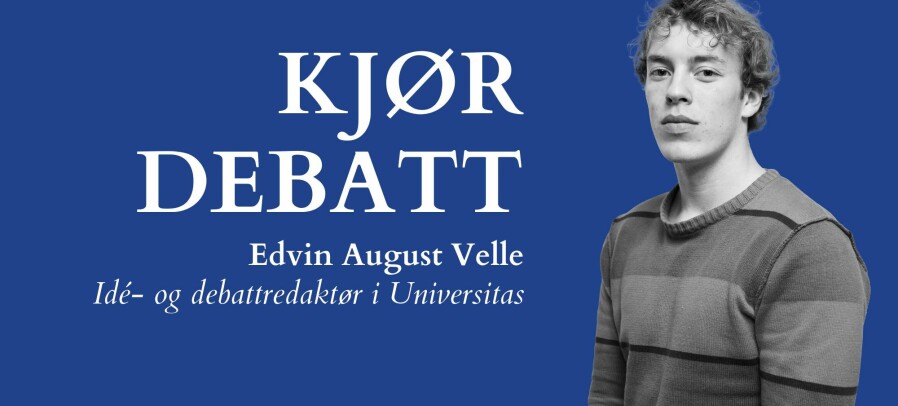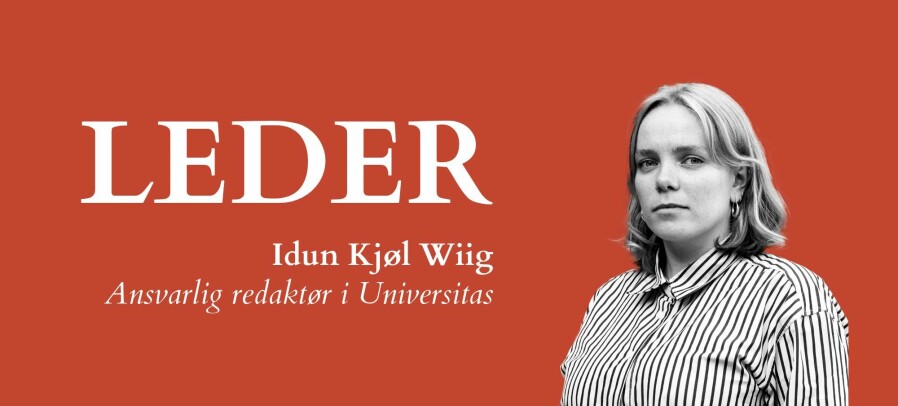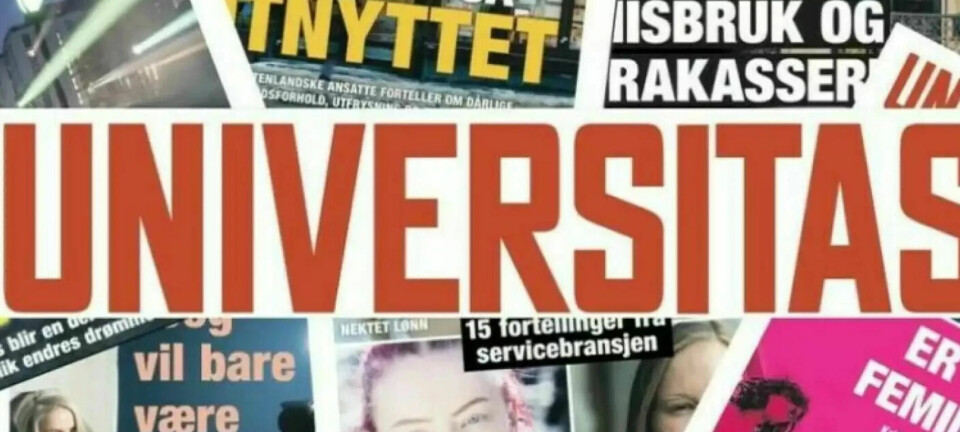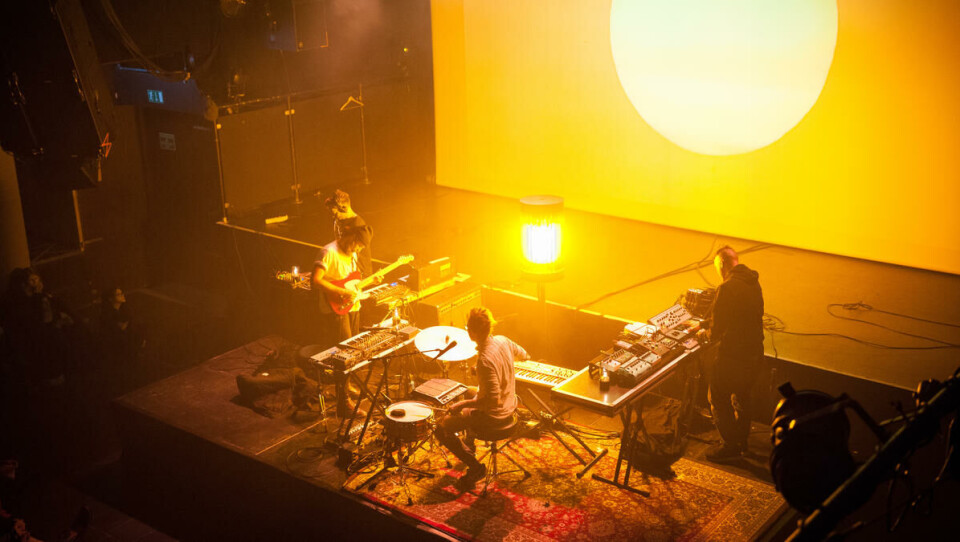
![«You should just do [things] where you think you could make a difference, and where you think you could actually make a change,» says Thea Mjelstad (center, in red and blue bunad).](https://image.universitas.no/132287.webp?imageId=132287&width=960&height=540&format=jpg)
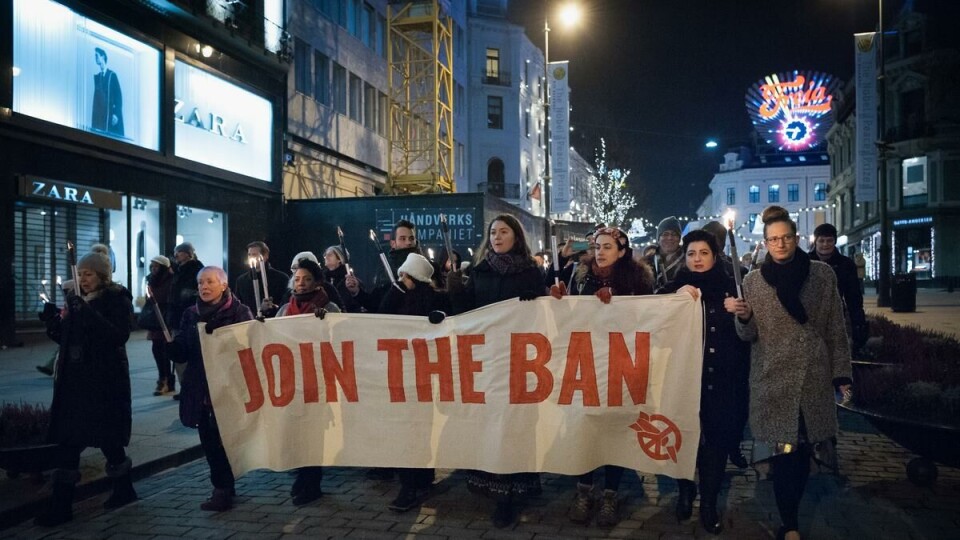
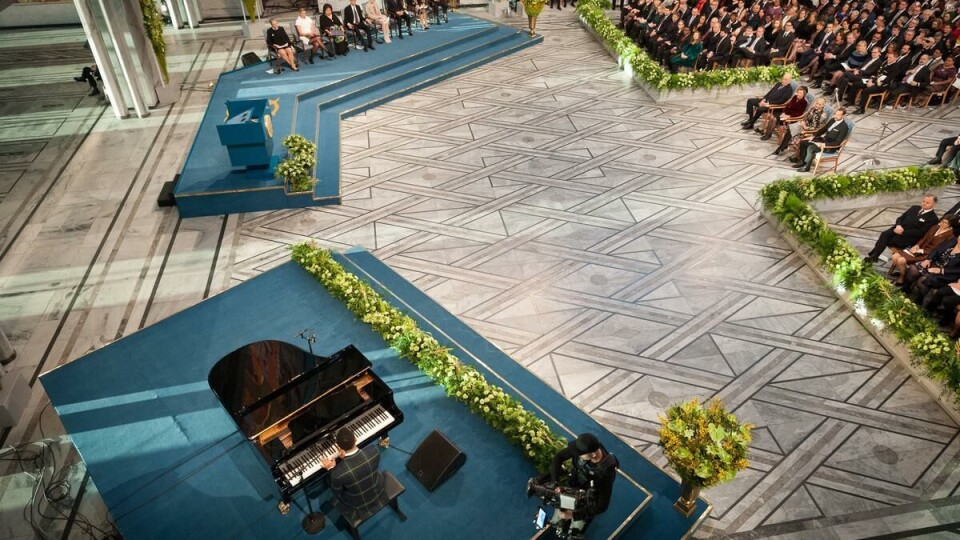
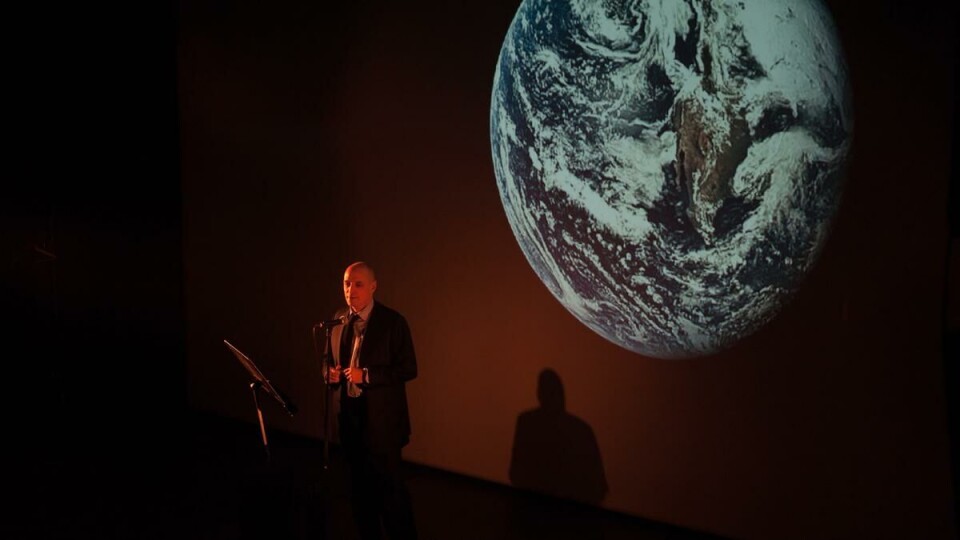
Failure to launch
Norwegian students once marched in the streets against nuclear weapons. Now they shrug at 2017’s Nobel Peace Prize. What happened?
On Oct. 6, the International Campaign to Abolish Nuclear Weapons (ICAN) won the 2017 Nobel Peace Prize. For Thea Mjelstad, a master’s student at UiO, and ICAN Norway volunteer, the moment was overwhelming. «I just couldn't stop crying and smiling,» she said.
Mjelstad has missed classes to lobby for ICAN at the UN in New York, protested outside the Norwegian Ministry of Foreign Affairs numerous times, and has been involved with the anti-nuclear movement in Norway for years. On Dec. 10, the Nobel Peace Prize ceremony was held in Oslo City Hall, and Mjelstad sat in the audience, beaming. «It’s just been a really emotional day,» she said later.
Read more: «We’re sick of sitting around waiting for you to give up your weapons»
Thea Mjelstad is both student and activist, but that kind of engagement is unusual on the University of Oslo campus. Getting students to protest against nukes is not as easy as it used to be.
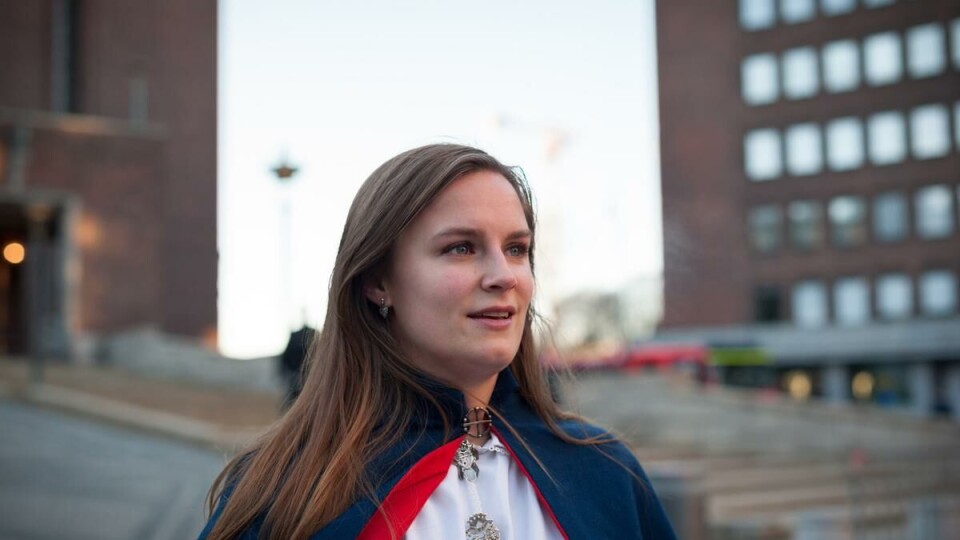
UiO students protested
The University of Oslo has a history of student activism against nuclear weapons. The Norwegian Students’ Society (DNS) used to be a hub of political activity. Debates there garnered close attention, and students were engaged with the latest issues. In 1961, DNS passed a resolution against Soviet weapons testing, and some members attempted to pass another against American atomic weapons testing. These resolutions only served the purpose of stating an opinion, but they were powerful ways to amplify student voices.
People think ‘everything is going to hell anyway, so why does it matter?'
Members of DNS also marched against the presence of nuclear weapons in Norway. The cause was controversial: as the Cold War was in full swing, students took to the streets with thousands of other citizens to oppose their own country’s foreign policy.
Young Norwegians’ relationship to nuclear weapons is different now. «I kind of have a notion that people think ‘everything is going to hell anyway, so why does it matter?’» one student said, laughing morbidly.
Norway and NATO
ICAN won the Nobel Peace Prize for members’ work in creating the Treaty on the Prohibition of Nuclear Weapons, which over 50 countries have signed since it was adopted by the UN this summer. Nuclear weapons states boycotted the treaty negotiations, and say they will never sign or ratify the document, but activists say the idea is to pressure them. Norway is one of the countries that refused to take part in treaty negotiations, and Prime Minister Erna Solberg has been openly critical toward ICAN.
Most Norwegians support disarmament. A 2015 survey by Norwegian People’s Aid showed 8 out of 10 Norwegians believe the country should work to ban nuclear weapons, and another survey showed 83 percent of Norwegians wanted the country to vote yes on starting the process for a treaty last year.
The reality is more complicated. Most Norwegian students support disarmament in theory, but in practice say they understand and support standing with NATO, and the US in particular. A 2016 survey ordered by Norwegian defense institute Folk og Forsvar showed 67 percent of 18- to 22-year-olds believe being a member of NATO increases Norway’s national security. That was a 17 percent increase in support from the year before.
«They are probably, most of them, pro-disarmament, but the effort they’re willing to put into it is not necessarily that high,» Victoria Ramm Henriksen, a UiO master’s student, explained.
«They are perhaps in agreement with the official line from the government that this treaty isn’t efficient, and we can do more being on the outside,» she said. «And also, the NATO argument, that we need NATO and NATO has nukes and we must support them, our allies.»
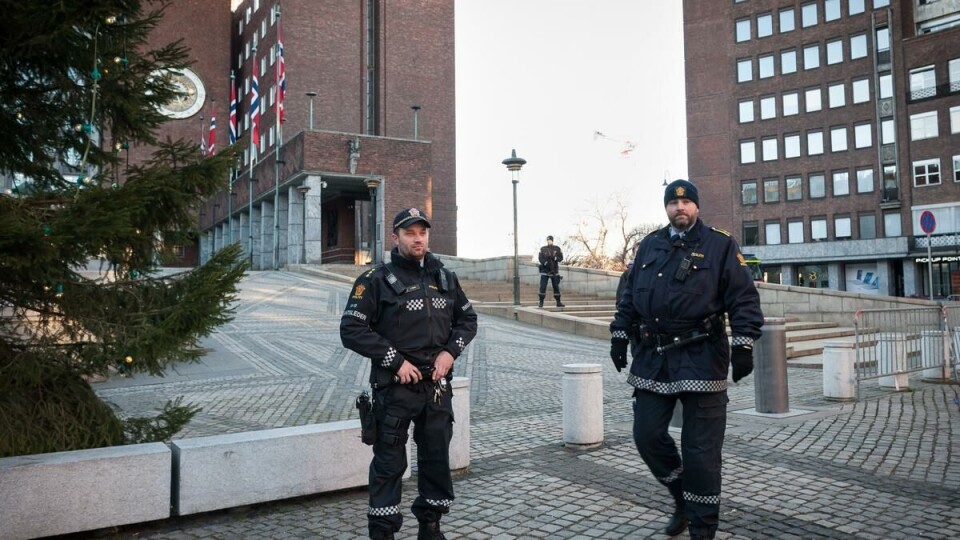
Fight or fatalism
Investigative writer Eric Schlosser, author of «Fast Food Nation» and «Command and Control,» came to Oslo in the midst of Peace Prize festivities to screen his experimental film «The Bomb.» The multimedia installation is calibrated to make the viewer afraid. Lights flash and the room rumbles as mushroom clouds billow on-screen. After the screening, he expressed little patience for apathy and inaction.
«I don’t have a lot of tolerance for people who kind of hold back, and especially people who are at university. Because to be at university is already to be privileged,» Schlosser said. «If you’re aware of a problem and it feels overwhelming, the best thing to do is to get active.»
What does it mean to be active in this political climate though? The fear of nuclear war is reaching Cold War levels, but protestors are notably absent. For young Norwegians, the way doesn’t seem clear the way it was for their predecessors. They support disarmament, but are hesitant to oppose powerful allies that are seen as necessary to the small country’s stability.
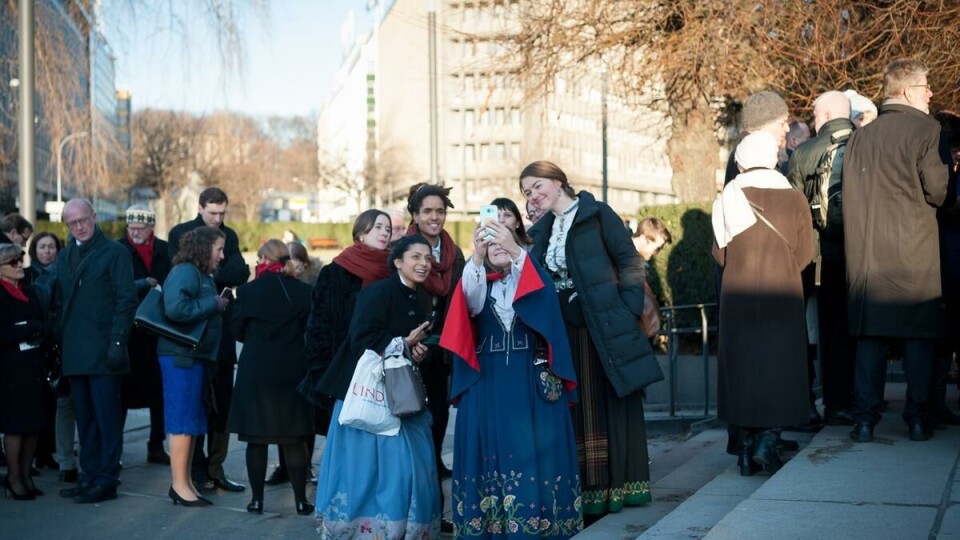
«You need to take those choices»
Three days before the Peace Prize ceremony, I met Mjelstad in her temporary office downtown. She looked excited, but drained. She told me she had been working between 10- and 16-hour days since the prize was announced, doing everything from scheduling visits to applying for the right to fly a drone over downtown.
When asked about her master’s thesis, Mjelstad seemed determined to finish it on time, but admitted balancing work and school had proven difficult. «I’ve been good at nukes the last couple of months, and really bad at everything else,» she said. Still, she feels the opportunity to work with real-world issues has been worthy.
Like Schlosser, she just wants people to start somewhere. «You should just do [things] where you think you could make a difference, and where you think you could actually make a change. You need to take those choices,» Mjelstad said.
The day after the Nobel Peace Prize ceremony, the webpages of Norway’s major newspapers were back to the daily news cycle. US President Donald Trump dominated the headlines for a plethora of reasons, but nuclear weapons and ICAN were nowhere to be found. 2017 will be a turning point, but toward what?






















